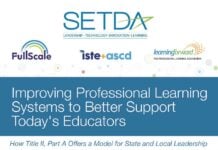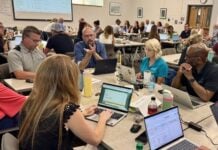The ability to memorize facts is quickly becoming obsolete. Asking students to recall formulas is no longer a sufficient measure of learning; the true test of rigor lies in their ability to apply knowledge to solve complex, real-world problems.
The Evolving Definition of Rigor
For decades, “rigor” in advanced coursework was synonymous with mastering vast amounts of information, completing challenging problem sets, and flawlessly recalling facts under timed exam conditions. This approach prioritized persistence and strong memory, a system that made sense when access to information was limited. However, in an era where answers are readily available through a simple search, that definition falls short. Modern rigor is no longer about what students can recite, but rather how they apply what they learn, adapt to new situations, and navigate ambiguity.
Key Skills for Modern Rigor
After decades in educational publishing, educators consistently express the same concern: memorization alone doesn’t adequately prepare students for the future. Instead, teachers are striving to cultivate curiosity, analytical thinking, and the confidence to tackle problems with multiple possible solutions. They want learning to be active and engaging, and to empower students to view themselves as lifelong learners, even when faced with setbacks.
These three interconnected skills define modern rigor:
- Adaptability: This involves applying learned principles to new situations and adjusting strategies when circumstances change.
- Critical Thinking and Problem-Solving: This encompasses framing questions, analyzing evidence, and making reasoned decisions in uncertain environments.
- Resilience: This refers to the ability to learn from mistakes, embrace change, and persist through challenges.
Developing these transferable skills is crucial, not only for postsecondary education but also for lifelong learning in a constantly evolving world.
Advanced Placement: A Model for Change
The Advanced Placement (AP) program provides an example of how advanced coursework is shifting. While previously focused on content mastery, AP now emphasizes deeper intellectual engagement. Instead of prioritizing memorization, AP courses increasingly prioritize the skills needed for higher education and the workforce: inquiry, analysis, and clear communication.
Many AP courses now incorporate project-based learning, often supported by specialized training for educators. Encouraging students to question assumptions, evaluate evidence, and defend their reasoning builds the very skills needed to thrive in both college and their careers.
The Urgency of Adaptation
The World Economic Forum projects that by 2030, two-thirds of the skills needed for jobs will change. Pearson’s “Lost in Transition” report reinforces this urgency, estimating that the United States currently loses $1.1 trillion annually—roughly five percent of GDP—due to the challenges students and workers face when transitioning from school to work. This loss includes delayed earnings, stalled careers, and the emotional toll of falling behind.
A key insight from the report is that occupations emphasizing active learning strategies are less likely to be automated. Teaching students to think, adapt, and learn continuously not only prepares them for college and career, but also makes them more resilient to technological disruption.
AI as an Ally, Not a Threat
AI might appear to challenge the concept of rigor, but strategically applied, it can be a valuable tool. AI can assist with tasks like fact-checking and generating practice problems, freeing teachers to focus on uniquely human skills: guiding inquiry, mentoring students, and helping them tackle open-ended, complex problems. AI doesn’s replace educators; instead, it enhances their ability to cultivate intellectual capacities that machines cannot replicate.
This shift aligns with the national emphasis on college and career readiness, which is defined not solely by test scores but by a broader set of skills, attitudes, and experiences.
What Rigor Looks Like in Practice
Designing advanced courses that integrate inquiry-based learning, project-based assignments, and performance tasks is crucial. Assessments should evaluate not only the correctness of answers, but also the reasoning behind them, complemented by continuous feedback and real-world connections.
A Shared Responsibility
Schools can’t achieve this transformation alone. Teachers require support through digital tools, professional development, and flexible approaches that move beyond rote memorization. Courses aligned with established standards like AP can effectively integrate content mastery with the development of transferable skills, ensuring meaningful and rigorous learning for all students.
The true measure of rigor isn’t about racing toward a credential, but about embracing the learning journey, learning from mistakes, and cultivating curiosity along the way.
Ultimately, the most important indicator of true rigor is whether students leave high school ready to adapt, inquire, and continue to grow. That is the next frontier for education.





















